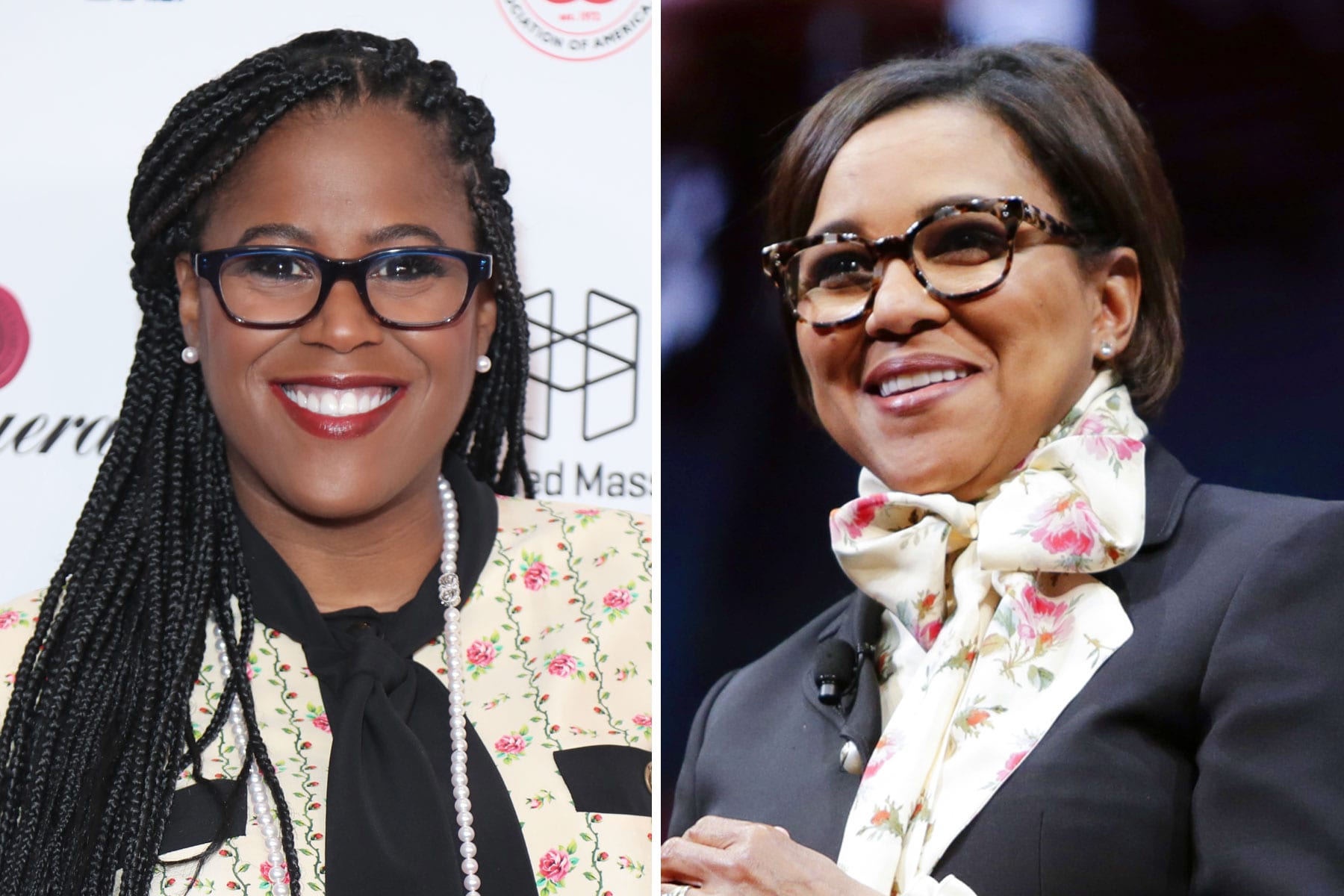Women executives passed several corporate milestones in 2021 even after living through a pandemic that crippled the economy and sparked the country’s first women’s recession.
There are 41 women — a record number — leading the country’s largest businesses, and among them are two Black women, according to the 2021 Fortune 500 list announced this week. Karen Lynch also made history by ascending to the top of CVS Health, the highest-ranking business to ever be helmed by a woman.
Roz Brewer and Thasunda Brown Duckett, two Black women, became chief executives this year of Walgreens Boots Alliance and the TIAA, respectively. Before then, only one Black woman had ever helmed a Fortune 500 business on a permanent basis: Ursula Burns of Xerox.
Many experts and researchers focused on gender parity and diversity in the workplace celebrated the progress, but acknowledged there’s a long way to go. Dr. Julia Fullick-Jagiela, an associate professor and chair of management at Quinnipiac University, said the vast majority of executive leaders are still White men and companies need to do more.
“Yes, it’s a record number, but it’s still only 8.2 percent,” said Fullick-Jagiela, who is also the co-director of the People’s United Center for Women. “We’re going in the right direction, so that’s helpful, but I do think that companies need to embrace how they’re going to be sponsoring women, and particularly women of color.”
To compare, there were 37 women chief executives in 2020; 33 in 2019; 24 in 2018 and 32 in 2017, on a list that has been published annually for more than six decades.
The numbers may also signify something about the economy in general. Women are more likely to take on leadership roles in times of great stress and crisis, a concept known as “the glass cliff,” which was coined in the early 2000s after two researchers found a pattern of women being appointed as leaders of failing companies or projects.
“There is considerable evidence that when times are challenging for an organization, the boards are more likely to consider female candidates,” said Raquel Alexander, the dean of Bucknell University’s Freeman College of Management. And when it comes to the fallout from COVID-19, women are perceived to be more equipped at handling personnel issues, such as work-life balance, mental health and wellness, and caregiving constraints, Alexander said.
Nearly 11 million jobs held by women disappeared in the early months of the pandemic, and women’s economic advancement was set back by a decade. The crisis revealed a major division of care between men and women inside American households.
“When the pandemic hit and I saw that women of color were being impacted the most, I was of course horrified, dismayed, angry but not surprised,” said Serena Fong, the vice president of strategic engagement at Catalyst, a nonprofit focused on women in business. “That could’ve been predicted if you look at the barriers that have been created in talent management systems, how you’re recruiting and who’s getting top jobs.”
During the pandemic, however, many U.S. businesses provided unprecedented flexibility to their employees by instituting work-from-home policies, which provided access to caregivers and those with disabilities.
Yes, it’s a record number, but it’s still only 8.2 percent
Dr. Julia Fullick-Jagiela, an associate professor and chair of management at Quinnipiac University
As more and more Americans get vaccinated, many corporate executives are assessing how to incorporate lessons learned when moving forward in a post-pandemic world. Catalyst conducted a global survey of nearly 7,500 employees and found that remote work increased employee well-being and productivity, Fong said. The study also found that women with child care responsibilities were 32 percent less likely to leave their jobs if remote work was an option when compared with those who didn’t have that option.
Fong said the pandemic’s impact on women in the workforce might have a “cascading effect” on women’s access to leadership positions in the future, and that she had hopes that a year of remote work could make for a better playing field.
“This is an opportunity to really look at and double down on rooting out the biases that create those barriers to advancement,” she said.
There are more women than men in the United States, and more women complete high school educations, attain bachelor’s degrees and pursue higher degrees when compared with their male counterparts. In addition, women currently make up nearly half of the U.S. labor force, and yet women are not promoted to management positions at the same rate as men.
“We have to see where we’re losing them along that path,” Fullick-Jagiela said. “It’s not enough to get them in the door. You need to make sure that they feel welcome, psychologically safe and that they have a voice… It can be very lonely when you’re the only one in the room.”
Fullick-Jagiela argued that the perception of who a leader is and how to rise to the top needs to change. Many people are taught leadership skills based on models of White, affluent men, but there’s more than one path and it’s usually not linear, she said.
“We also have to get rid of the myth that we’re swinging the pendulum and now we’re discriminating against White men,” Fullick-Jagiela said. “That’s not what’s happening. It’s not pie. You can have success across different groups and raise everyone together without detriment to other groups.”
Dr. Sungsoo Kim, an associate professor of management at the University of Denver’s Daniels College of Business, says she is hopeful that the number of women executives will continue to increase as it becomes easier for women and minority groups to access leadership pipelines.
“It’s helping that organizations are getting more diverse,” Kim said. “Women, especially young women, tend to have more mentors to support their growth and provide opportunities and build the confidence needed to claim their identity as a leader.”
Kimber Maderazzo, the chairman of the board for C200 — a membership organization of women entrepreneurs and corporate leaders — said it would still be a long time before we see equity and equality in corporate boardrooms.
“Getting more women in the C-Suite is a long-term goal,” Maderazzo said. “It’s going to take change at every level where we meet women. We have to make sure to help elevate them so they can succeed and have equal opportunities.”






